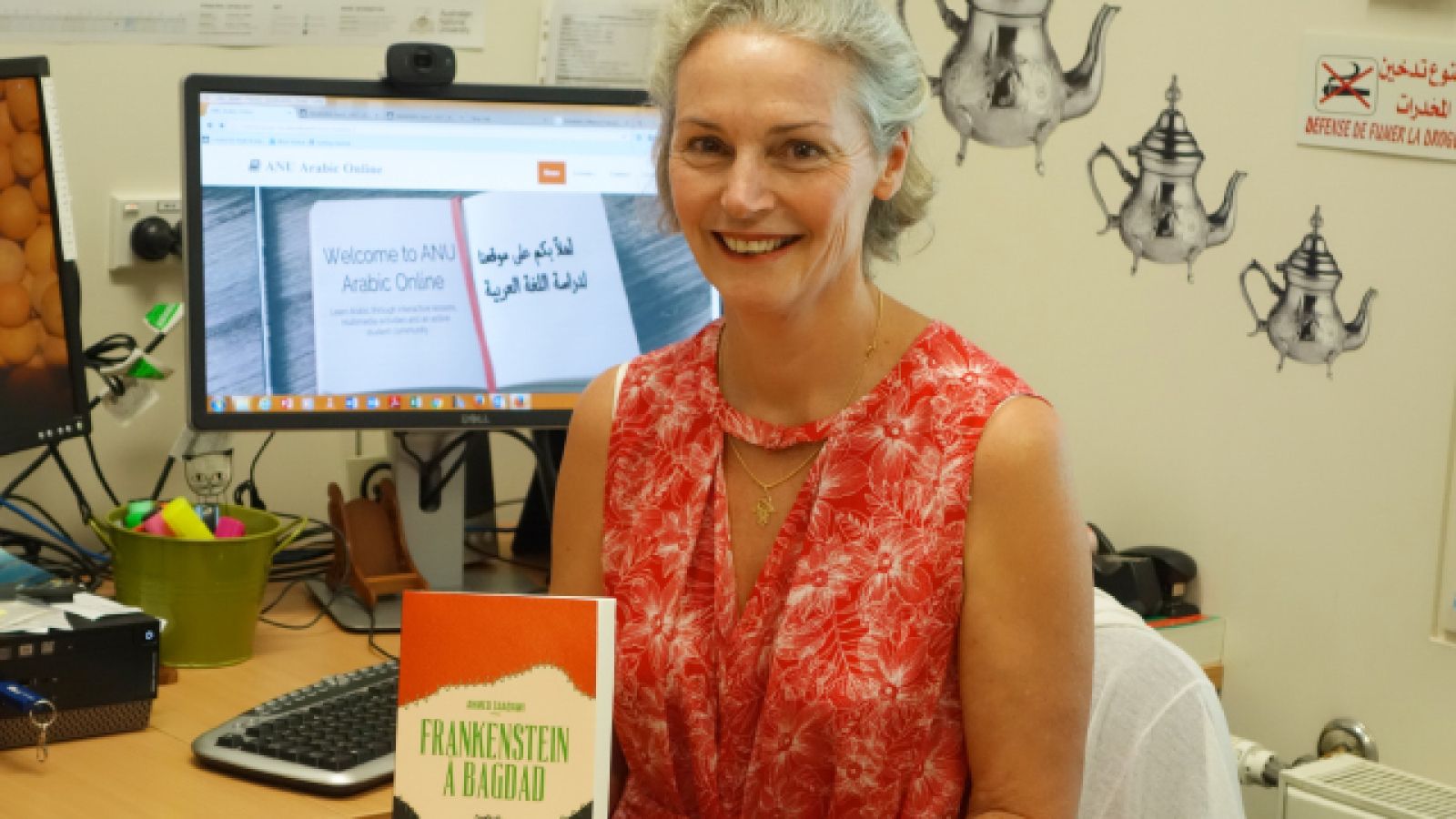Acclaim for ANU academic’s translation of Arabic Frankenstein novel

Frankenstein in Baghdad, by Iraqi author Ahmed Saadawi, is the 18th novel France Meyer has translated over her 30-year career.
France Meyer, a lecturer at The Australian National University’s Centre for Arab and Islamic Studies has been acclaimed for her French translation of a prize-winning Arabic novel.
Frankenstein in Baghdad, by Iraqi author Ahmed Saadawi, is the 18th novel France has translated over her 30-year career as a literary translator specialising in Modern Arabic Literature.
“I started reading it with mixed feelings as I am not usually drawn to fantasy literature or anything to do with ghosts, blood or unearthly creatures. The title itself was enough to scare me off,” France says.
“However, the novel proved to be a real page-turner based on historical facts, very well structured and written, with all the necessary elements to keep the reader on its feet, and true literary style and creativity.”
One character France particularly liked was Hadi, a rag-and-bone man and boisterous storyteller who unintentionally gives life to a Frankenstein-like monster and tries to pretend it remains a creature of his imagination.
“Storytellers fascinate me,” she says.
“I come from Morocco where storytelling is a very popular art form, and I spent many days of my life listening to street entertainers, storytellers, illusionists and other tricksters and snake charmers who thrive on the bustling marketplaces and souks of the Arab world.”
French publishing house Piranha initially asked France to review the novel, which won the International Prize for Arabic Fiction in 2014, the Arab world’s equivalent of the Booker Prize. Her review prompted Piranha to commission a translation.
Mr Saadawi does not speak French or English, so he and France communicated in Arabic via email during the 18 months it took France to translate the book.
“Mr Saadawi was always willing to explain a point of grammar or a nuance of Iraqi dialect, discuss any element of the plot that I found confusing, and correct any inconsistencies or inadvertent ambiguities of the storyline exposed by the deep and thorough research inherent to the translating process,” France says.
“This was essential to maintain structural, narrative, and linguistic integrity and to ensure the accuracy and authenticity of the translation.
“The overwhelmingly positive echoes my translation continues to receive in the press and on the French literary scene assure Mr Saadawi of the quality of my work.”
Ahmad Saadawi believes the best way to understand the plight of Iraq is through its literature, not its news reports. France herself stresses that literary translators are vital to the dissemination of culture and to the promotion of universal tolerance.
“Understanding the peoples, societies and political or economic systems that shape our world relies in many ways on the skills and engagement of translators.”
France sees teaching as complementary to translating. Teaching a language involves translating its culture and building bridges between thoughts and attitudes, beliefs and behaviours.
“I love to pique students’ curiosity, to give them keys to discover other countries, customs and traditions, and to debunk the myths and fables related to the difficulty of learning Arabic,” France says.
“Teaching is also learning. Students never cease to amaze and challenge me.
“Their questions, their doubts, their dreams and aspirations, their enthusiasm, their diversity and the wealth they represent for a nation define my role as a human being and shape my own understanding of our evolving world.”